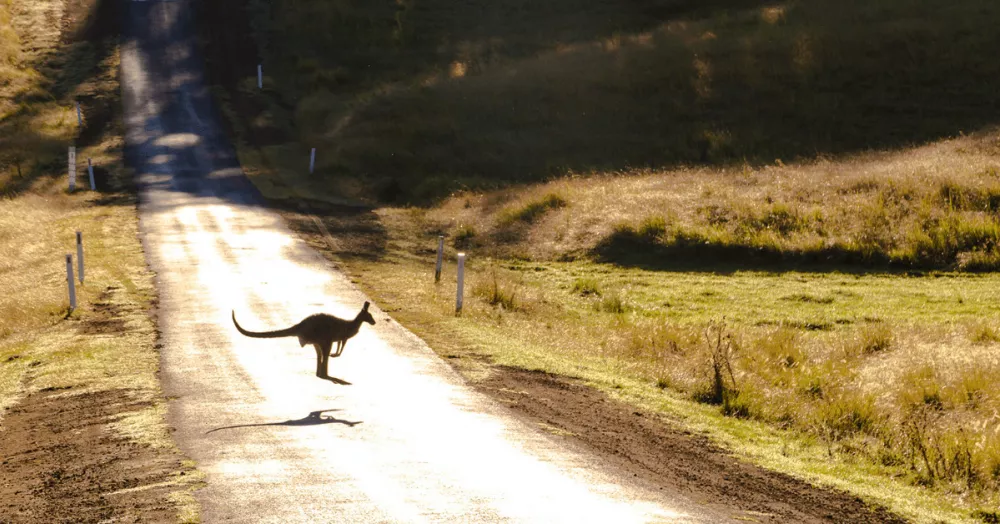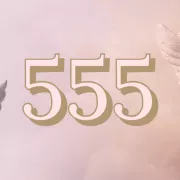My Country - A Poem by Dorothea Mackellar
A powerful poem about Australia and about nature, My Country by Dorothea Mackellar persuades us to think deeply about our planet and appreciate the small things in life.

My country, first and foremost, is a poem about Australia. Its beauty and its wrath. Its kindness and its temper. Breath-taking and powerful at the same time.
However, Dorothea Mackellar’s description of Australia is also in many ways, a description of nature and planet earth. While the poem alludes to the terrain, flora, fauna, and weather of Australia, it does not allude to its people, society, or culture at all. In many ways, the poem is an ode to mother nature as well.
The Poem - My Country by Dorothea Mackellar
The love of field and coppice Of green and shaded lanes, Of ordered woods and gardens Is running in your veins. Strong love of grey-blue distance, Brown streams and soft, dim skies I know, but cannot share it, My love is otherwise. I love a sunburnt country, A land of sweeping plains, Of ragged mountain ranges, Of droughts and flooding rains. I love her far horizons, I love her jewel-sea, Her beauty and her terror The wide brown land for me! The stark white ring-barked forests, All tragic to the moon, The sapphire-misted mountains, The hot gold hush of noon, Green tangle of the brushes Where lithe lianas coil, And orchids deck the tree-tops, And ferns the warm dark soil. Core of my heart, my country! Her pitiless blue sky, When, sick at heart, around us We see the cattle die But then the grey clouds gather, And we can bless again The drumming of an army, The steady soaking rain. Core of my heart, my country! Land of the rainbow gold, For flood and fire and famine She pays us back threefold. Over the thirsty paddocks, Watch, after many days, The filmy veil of greenness That thickens as we gaze … An opal-hearted country, A wilful, lavish land All you who have not loved her, You will not understand though Earth holds many splendours, Wherever I may die, I know to what brown country My homing thoughts will fly.
About the poet
Isobel Marion Dorothea Mackellar was an Australian poet known for poetry and prose on romance, travel, and patriotism. She was born in Sydney on the 1st of July 1885. Mackellar loved traveling and due to her frequent travels, she became fluent in French, Spanish, German, Italian, and English. With a fine taste in fashion, Mackellar loved the arts in all its forms.
She began writing at a very young age. She was a hopeless romantic and her writings reflected that. Her literature was also a memoir of her travels. This poem, My Country became popular during World War as it instilled a spirit of patriotism in the hearts of the countrymen. Some of her other famous works are- ‘The Closed Door’, ‘Outlaw’s Luck’, ‘The Witch-Maid’ and ‘Fancy Dress’.
Dorothea died in the year 1968 after she had a fall at her home. Even though she is not present with us today, her writings will always be a reminder of the free-spirited person that Dorothea was, and her work will continue to inspire people all around the globe.
About the poem
This poem is an appreciation of the vast Australian landscapes that have their beautiful diversities. Mackellar loved traveling, but at the end of the day, it was the beauty of her homeland that she always got back to. Her heart found home in Australia.
The poem has detailed visual descriptions of Australia and the diversities of the country. Mackellar romanticizes Australia through this poem. The use of intense visual imagery and personification of Australia throughout the poem makes it a treat to read.
The poem also has a lovely ring to it because of its beautiful rhyme scheme. Through this poem, Mackellar inspires her readers to look around a little more and observe the things around us closely. Often, we tend to neglect the things we are bestowed with, but it is these simple pleasures around us that give us true happiness. Our country, our planet, and our surroundings are not appreciated enough. This poem is a reminder for us to connect with nature once again.
Analysis of the poem
Stanza 1 and 2
The first two stanzas describe the varied beauty of the Australian landscapes. Mackellar says that the beauty of the lush green landscapes and the woods cannot be compared to anything. She compares the rugged land of Australia to the civil beauty of England stating that nothing can beat the beauty of Australia. These two stanzas stand as a juxtaposition to the landscape of England.
Mackellar finds happiness in the diversity that her country holds. Her heart rejoices every time she witnesses the mountain ranges, the woods, the beautiful waters, and the rugged plains. She prefers the rugged feels of her sunburnt country to any other place. It is not just the beauty that makes the place home. It is also the flooding rains and the extremity of the droughts that make this place humbling. In this stanza, Mackellar’s contract of nature adds a sense of realism to the poem. There is nothing that the poet wants to change about her country – she embraces it completely, just the way it is.
Daffodils William Wordsworth Poem Analysis, meaning, and theme. This article dives deeper into the underlying message of the poem, “I wandered lonely as a cloud”.
lifeism.coStanza 3 and 4
In the following stanzas, Mackellar continues to describe the extremities of the country, the stark contrast that can be experienced in just a day. She uses lovely visual imagery here to describe the beauty of her land.
In stanza 3, the poem describes the beautiful mountain tops that look like ‘sapphire-misted mountains’ hugged between the arms of the misty clouds. By using the word sapphire, a hard jewel, and mist/cloud, known for softness, Mackellar is not just creating stark visual imagery in the minds of the reader, but also emphasizing the contrast and variety of the country.
The green and the brown, the acrid and the chill, the poet embraces it all. The contrasts presented in the poem so far have been strong but bright. In the next paragraph, it takes a darker turn.
The author personifies the country and the elements of nature literally and metaphorically, describing pitiless skies, floods, and draughts. The poet doesn't just stop there, she also describes what the wrath of nature can do, the death of cattle and crops.
These stanzas show brutal honesty. There is no hiding behind the beauty of Australia. There is utter honesty in the poem, lain bare like the vast expanse of the country. And despite of these extremities, the author loves Australia
This World Earth Day, let us remember our responsibility towards our planet. Let us take inspiration from famous quotes and act on them.
lifeism.coStanza 5 and 6
In the 5th stanza, the poet writes about how despite the flood, fire, and famine, the country is generous. There may be droughts and floods, but there are also the luscious green fields and beautiful mountain ranges. The refrain of the poem – “Core of my heart, my country!”, is once again repeated, emphasizing the enthrall and patriotism of the poet.
In stanza 6, Mackellar calls Australia an ‘opal-hearted country’. Opal is a beautiful stone. She uses this paradoxical statement to compare the beauty of the country to the iridescent shine of opal and the harshness of opal’s stone-like properties. That despite the hardness, its generosity and beauty shine through. The last stanza in particular shows us how devoted Mackellar is towards her country.
Let’s take a deeper look at the poem
This is a poem of love and attachment. At first glance, the poem seems quite simple, yet stirring. We can come to a consensus that the poem is about glorifying and romanticizing not just Australia, but also nature. It is Mackellar’s way of appreciating the country she was born in. Her poem also encourages us to look around and appreciate the small things. nature has to offer.
Simple pleasures of life, all summarized in a neat little post. Take some ideas from our list for your gratitude journal.
lifeism.coThe poet teaches us the importance of finding joy in the smallest things in life and being grateful for whatever is given to us. Life is fleeting, the storms come and go. But as the storms come and go, so do the sunshine and the happy days. In fact, it is these storms that allow us to appreciate the happier days. There will always be light at the end of the tunnel, we just have to find the courage to get through the darkness.
They say that what’s on the outside is a reflection of what’s on the inside. Have you taken a look recently to check in on the inside?
lifeism.coThis is also a poem about love. Love has no boundaries and true love is always unconditional. Mackellar loved her country endlessly, despite the flaws. We can interpret Australia as the metaphorical representation of love or a person. Through this poem, Mackellar portrays the true value of love.
We can also view the country as an extended metaphor for life. Life has its ups and downs. We have good days and bad days. Instead of laying our focus on the bad days, we should shift our perspective to focusing on the good. At the end of the day, our bodies are the only constant home we are going to reside in till we die.
Our final thoughts on this poem
My Country is a poem of love, life, and struggle. It is a poem that teaches us to make the best use of whatever we have and focus on amplifying the good. Mackellar’s dedication, passion, and love for her country are inspiring. Very rarely do we sit and appreciate nature around us. It is easy for us to complain and point out the faults in our country. But what if we turn this around and see the good more often. How beautiful can life be then?
My Country by Dorothea Mackellar Downloadable and Printable File
Click Here to Download a Printable of My Country by Dorothea Mackellar












Comments
[Comment hidden due to low rating]
Australia indeed is a beautiful country. The landscape and magnificence of Australia is very nicely portrayed in the poem.
Such love of country an nature and patriotism.
It is indeed a wonderful poem. We love it too.
My Country is lovely poem by Dorothea Mackeller. Australia is captured so beautifully here.
very nice